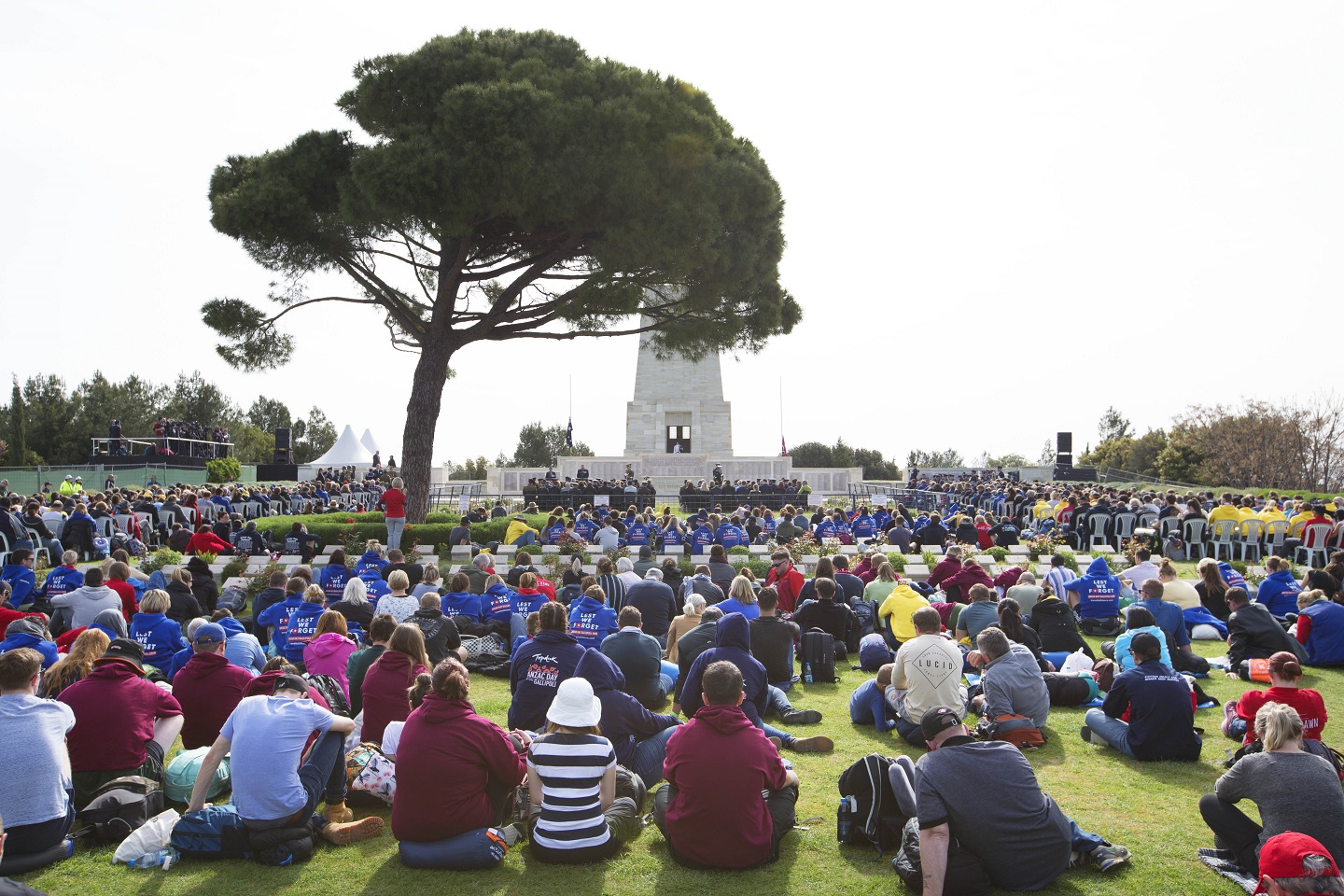For more than a century, Anzac Day has held a special place in Australians’ consciousness.


There is no more significant place in Anzac history than Gallipoli, where Australian and New Zealand soldiers stormed the beach at dawn on the April 25 1915.
Constantinople, the capital of the German-allied Ottoman Empire, was the target. Readers are more likely familiar with the city of Constantinople by its modern name, Istanbul.
‘Gallipoli’ is an Italian derivative of the Greek word Kallipolis, meaning ‘beautiful city’, used by Plato in his book The Republic.
While I am yet to visit Gallipoli, also known as Gelibolu, the images are indeed beautiful. A coastal European landscape that is as picturesque as any other, so idyllic it looks like a perfect holiday destination.
Then there are the images of the Anzac memorials among this perfection, located at Anzac Cove about 50 kilometres from Gelibolu. This provides a jarring reminder of the more than 8,000 Australians who died during eight months of conflict that followed the first landing.
In so many ways, it is challenging to consider a place with such painful history as one drawing its name from a utopian vision of a beautiful city.
Australian soldiers, some as young as 14, defined generations of Australian culture with their courage. Perhaps, as time passes, this is where the beauty lies. In their memory, in their legacy and through their influence of our culture.
Among those cultural references is the bugle, a simple brass instrument whose calls used to define the phases of the day during battle: the Reveille signified the start of the day, the Last Post marked the end of the day. One can only imagine what that sound meant to the surviving young soldiers engaged in battle.
Rosemary is often worn on Anzac Day, as it grows naturally in the Gallipoli Peninsula. The Anzac Biscuit, now a tasty treat, was sent to soldiers as it was relatively non-perishable for long periods.
Many readers will recognise The Ode, taken from the poem For the Fallen by English poet Robert Laurence Binyon, and first published on September 21 1914, only weeks after the start of WWI.
They shall grow not old, as we that are left grow old:
Age shall not weary them, nor the years condemn
At the going down of the sun and in the morning
We will remember them.
It is also important to remember there were heavy losses of life on both sides of the Gallipoli campaign. Perhaps this sense of shared horror of war and sadness of loss was best described by Turkey’s first president, Kemal Atatürk, who offered the following words of comfort when the first Australians and New Zealanders returned to visit the battlefields.
“Those heroes that shed their blood and lost their lives, you are now lying in the soil of a friendly country, therefore rest in peace. There is no difference between the Johnnies and the Mehmets to us where they lie side by side, here in this country of ours.
“You, the mothers, who sent their sons from far away countries, wipe away your tears. Your sons are now lying in our bosom and are in peace. After having lost their lives on this land they have become our sons as well.”
The Anzac commemorations now symbolise more than the Battle of Gallipoli. It has come to represent the bravery and remembrance of our entire defence force, across every battle.
In that spirit, I encourage you to consider the small ways you or your company can engage with Anzac and veteran issues.
Some may include mentorship for veterans seeking to enter the workplace, via veteransoffice@jtsi.wa.gov.au.
Working Spirit also offers veteran employment assistance.
Soldier On and Legacy WA provide support services to veterans’ families, while Anzac House on St Georges Terrace offers wonderful event venues and a great restaurant for your next business lunch.
Take the family to Kings Park and recount the significance of our veterans to the younger generations while touring the spectacular memorial.
For the veterans and active servicepersons reading this, if commemorations bring back challenging memories, reach out to Open Arms for veteran and family counselling on 1800 011 046, or the ADF Mental Health Support Line on 1800 628 036.
To our veterans, active ADF members, to our allies, and to ADF families past and present, thank you.
• Kristian Constantinides is the general manager of Airflite, and chairperson of AIDN-WA; the opinions expressed are purely his own













